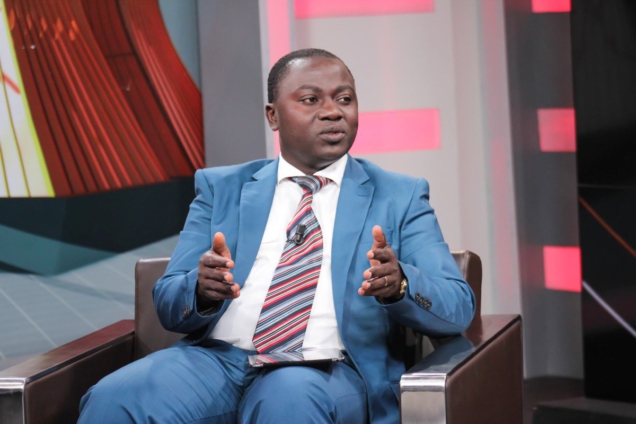For some time now, whenever the topic of how to preserve the Ghanaian culture is being discussed, one of the most common suggestions that is proffered is that we must encourage the speaking of local languages to enable us to preserve our culture.
Sure, that must be a solution, but from Friday, July 7’s session of Joy FM’s SMS show, a licensed psychologist disclosed there is more to encouraging the speaking of the mother tongue than in preserving culture.
According to the lecturer and licensed psychologist, Dr. Collins Badu Agyemeng there is a link between multilingualism, intelligence, confidence and self-esteem in children.
He indicated that multilingualism helps to elevate the level of confidence and self-esteem in a multilingual child.
Dr. Agyemang explained that, because a multilingual child possesses the ability to speak different languages, it is easier for such a child to express themselves irrespective of where they find themselves.
“If someone is speaking Hausa, I [a multilingual child] can communicate, so I am there, my presence is felt. If the person is Speaking Twi, here I am, Ga, here I am. So there’s a link between confidence and multilingualism and intelligence, confidence and self-esteem at that level.
Another benefit associated with multilingualism that Dr Agyemang raised, was that multilingualism supports healthy ageing.
According to Dr Agyemang, research has attested that there are fewer health benefits associated with monolingualism.
He further stated that multilingualism is strongly linked to health and well-being, and highlighted the benefits of multilingualism on one’s cognitive health.
The psychologist stated that “multilingualism has been found to actually protect against symptoms of Alzheimer/dementia old age.”
Dementia is a pervasive deterioration of memory and at least one other cognitive function, such as language, and functions such as planning and decision-making, whereas Alzheimer's disease is a specific brain disease characterised by symptoms of dementia that progressively worsen over time.
The psychologist explained that the brain of a multilingual person is active, which in turn slows down memory loss because, due to the active nature of the brain, the brain is always at work.
Dr Agyemang said, “As I [a multilingual individual] grow older, if someone speaks English, and I understand, it hits some nerves. So the nerves become activated in my brain."
“Now if someone speaks Twi, and I understand, it also activates some nerves so there is brain stimulation… it keeps your brain active, and because of this, the brain is always working, and the more your memory works, it slows down memory loss,” he further explained.
Considering that the nation has a weak healthcare system, Dr. Agyemang then reasoned that Ghanaians should take advantage of the diverse languages that they have and encourage multilingualism so as to drastically reduce the possibility of a number of Ghanaians getting Alzheimer's or dementia.
Latest Stories
-
US returns $50m in alleged stolen funds to Nigeria
7 minutes -
Mahama restructures Ministries, reduced from 30 to 23 – See full list
13 minutes -
2 siblings die after being locked in water drum by 6-year-old sister
33 minutes -
Mahama shouldn’t have openly directed Parliament to elect Speaker – Prof. Kwaku Asare
50 minutes -
Daily Insight for CEOs: The power of delegation – Empowering leaders within your organization
56 minutes -
Livestream: Newsfile discusses inaugurations, prisoner pardon and failed CJ petition
1 hour -
Revisiting the forensic audit EC will increase credibility of future elections – Omane Boamah
3 hours -
Africa Food Systems Parliamentary Network urges governments to increase investment in agriculture
11 hours -
AU and partners urge youth to get involved in efforts to transform continent’s food systems
11 hours -
Fire kills 3-year-old at Asawase-Dagomba Line in Ashanti Region
12 hours -
Paskal A.B. Rois: How Mahama inspires me
12 hours -
Complete abandoned projects in Akatsi North District – Chiefs to Mahama
12 hours -
Painter and sculptor B. Acheampong turning his passion for art into profitable venture
13 hours -
Presidential lodge, RM residency in Ashanti region left to rot away
13 hours -
Herty Corgie highlights the essence of gratefulness in ‘My Gratitude’
15 hours

